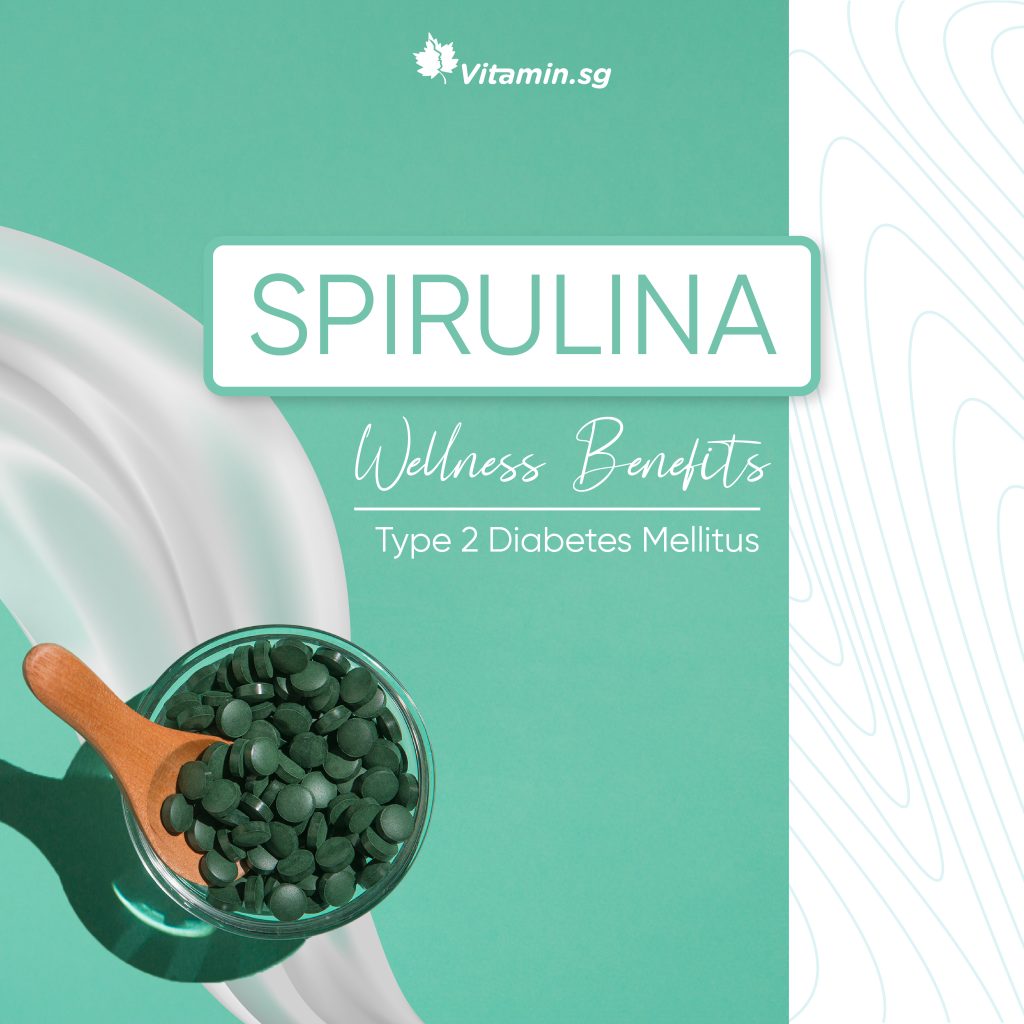Home / Health Blog / Are You Taking the Right Supplements at Your Age?
You have been religiously taking a range of supplements but is it what you really need at your age?Though many of you strive to live and eat right, it is inevitable that pockets of deficiencies exist in your diet. This could be due to reasons like rushing through a demanding work day, letting loose over the weekend, or personal preferences in your choice of food. So how can you plug these deficiencies that arise from everyday factors and inhibit your optimal intake of essential vitamins and minerals? Since nobody has a perfect diet, the answer lies in supplementation. You need the same nutrients every day but the requirements of your body change as you ripen in age; a child and an adult’s body have different capabilities and needs. How then do you know what your body needs? Read on to find out more about the type of supplements you need at your age. Article sections:
Vitamin D Recommended daily intake: 400 IU of liquid vitamin D Breast milk or formula is sufficient in providing for all the needs of the baby for the first six months, with the exception of vitamin D which is necessary for developing strong bones and teeth. Breast milk contains very little amounts of vitamin D and though vitamin D can be synthesized through exposure to sunlight, many babies do not get sufficient exposure, especially in their first few months. Nutritionist Bridget Swinney recommends vitamin D as a supplement for breastfed babies and babies who drink less than 32 ounces (about 1 litre) of formula a day. Iron Recommended daily intake: 11 mg Iron fuels a baby’s growth and development. While healthy babies are born with enough iron for at least the first six months, premature babies are found to have fewer iron stores (and thus require iron supplementation). A deficiency can result in growth and developmental delays, and have long-term effects on neurological development, as published in Nutrition Reviews. A baby’s iron reserves begin to run dry when solids are introduced into the diet. Therefore a baby’s intake of iron needs to radically increase through the consumption of iron-rich food like puréed meats and legumes, and iron-fortified products like infant cereal. As vitamin C aids in the absorption of iron, parents should consider infusing vitamin C in the baby’s meal. Foods that are rich in vitamin C include broccoli, tomatoes and oranges. If the baby rejects iron-rich food, consider using supplemental iron drops. It is important to note that an overdose of iron can cause liver damage. Always consult a doctor and take proper precautions like storing away supplements.
Probiotics Recommended daily intake: 10 billion colony-forming units Children are notorious for contracting sicknesses, and require antibiotics to clean out bacterial infections. Probiotics are live, active, and friendly microorganisms that can help maintain a strong immune system by building good bacteria. They “provide an extra layer of strength. (They behave like) soldiers in your intestinal tract to combat pathogens”, says Dr. Mary Ellen Sanders, an expert in the area of probiotic microbiology. Also, according to Dr. Natasha Campbell-McBride, a nutritional consultant, “A good probiotic on average increases absorption rate of nutrients from foods by 50% or more. On top of that probiotic bacteria are supposed to be the main source of vitamins B, K, biotin and many other substances within the body”. Thus probiotics improve intestinal function through maintaining the lining of the intestines and increasing the capacity for mineral absorption. Cod Liver Oil Recommended daily intake: 1 teaspoon Cod liver oil, as the name suggests, is the essential oil extracted from the livers of cod fish. It is a common supplement for children, and with good reason! Cod liver oil is a rich source of omega-3 fatty acids, which is important for brain development, behavioural function, and the maintaining of heart health. Cod liver oil also contains good amounts of vitamin A and vitamin D. While vitamin D helps the body absorb calcium to build strong bones, vitamin A is essential for the functioning of the immune system and regulating vision. Vitamin A increases a child’s resistance to diseases and stimulates cell growth. As cod liver oil is known for its strong taste, children who are picky may have a hard time accepting it. So try adding it to the child’s favourite food and/or drink, like muffins and smoothies. A little creativity goes a long way!
Multivitamin Being at the stage of puberty, adolescents have massive nutritional requirements. Due to the demands of their heavily active lifestyle and personal eating habits, they are likely to be consistently missing out on receiving a complete nutritional package, though good nutrition is necessary if they are to maximize their growth potential. Thus taking a good multivitamin supplement will prevent basic nutritional deficiencies. A good multivitamin for adolescents should contain an important base of nutrients that support a healthy level of growth and development. Most multivitamin formulas contain the essential vitamins (A, B, C, D, E), and a dash of minerals. As the needs of every individual differ, it is important to determine the suitability of the multivitamin product through checking through the ingredients list on the label. For example, girls should check for the inclusion of iron as a nutrient in the multivitamin supplement to compensate for their monthly loss of blood through menstruation.
Calcium Recommended daily intake: 1000 mg. What is the most common and abundant mineral in the human body? The answer is calcium! While calcium is found primarily in the bones and teeth, a small but essential amount is found in the blood and soft tissues. The reason why you lose bone density as you grow older is because the calcium absorption decreases during adulthood, and the body takes calcium from the bones (demineralization) to maintain the level of calcium circulating in the blood, which leads to bone fragility. Thus it is important to maintain the intake of calcium via supplementation in order to minimize the demineralization of the bones. Folic Acid (Women)Recommended daily intake: 400 mcg Folic acid, a B vitamin, keeps red blood cells healthy. It is important in helping to reduce the chances of developing neural tube defects, which affect the brain and spinal cord of the foetus. As neural tube defects develop within the first month after conception, it is recommended that women who are planning for pregnancy start taking folic acid daily prior to conception, and continuing into early pregnancy. As well as taking folic acid, mothers should also be eating folate-rich foods like leafy green vegetables, citrus and lentils. A mother’s diet is important as it directly influences the baby’s diet. As such, vegetarians, vegans, and those with special diets need to keep a special eye on their nutrient intake. A well-balanced diet can provide sufficient nutrients for both mother and baby, but it is still difficult for vegetarian mothers to obtain enough iron and vitamin B12. As such, multivitamins are highly recommended.
Vitamin D Recommended daily intake: 800 IU Vitamin D is essential for bone health because it aids the body in calcium absorption and helps maintain bone density. It also has a role in preserving muscle strength. Hence a lack in vitamin D will result in the loss of bone mass and contribute to muscle weakness. Both consequences, when combined, can result in bone fracture. Though vitamin D can be obtained through exposure to sunlight, your body’s capacity to synthesize vitamin D in the skin is greatly reduced. Thus synthetic/ supplemental vitamin D is important for you in the later stages of your life, on top of having foods like fatty fish, eggs, and fortified milk and cereals. Vitamin B12Recommended daily intake: 500 mcg of crystalline vitamin B12Vitamin B12 is important for the maintaining of healthy nerve cells and neurological function, and aids in red blood cell formation. A deficiency can cause pernicious anaemia, and irreversible neurologic effects, leading to Alzheimer’s disease. As you age, your body is less able to extract vitamin B12 from natural sources like meat and eggs, and absorb it. This is because vitamin B12 is bound to protein but synthetic vitamin B12 is already in free form. This makes B12 fortified foods and supplements ideal replacements. Remember to ask your doctor or pharmacist about dietary supplements you take and how they may affect your medications. What supplements are you currently taking? Comment below or on our Facebook page to share with us and the Vitamin.sg community!


